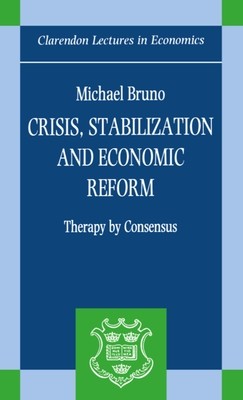
- We will send in 10–14 business days.
- Author: Michael Bruno
- Publisher: Clarendon Press
- ISBN-10: 0198286635
- ISBN-13: 9780198286639
- Format: 14 x 21.6 x 2.2 cm, hardcover
- Language: English
- SAVE -10% with code: EXTRA
Reviews
Description
This book examines the phenomenon of the high inflation processes of the 1970s and 1980s as exemplified by Argentina, Brazil, and Israel. It explores the common characteristics of such processes and their possible cures--with some emphasis on the lessons of the Israeli experience in respect of the role of incomes policy and the political economy of stabilization. The discussion of the theoretical underpinnings of "shock" treatments provides a good example for the blending of a number of disciplines: lessons of economic history, open economy monetary and macro theory, game-theory applications to economic policy design (concepts such as dynamic inconsistency, government reputation, and credibility) and the rationalization of incomes policy.
EXTRA 10 % discount with code: EXTRA
The promotion ends in 15d.19:34:14
The discount code is valid when purchasing from 10 €. Discounts do not stack.
- Author: Michael Bruno
- Publisher: Clarendon Press
- ISBN-10: 0198286635
- ISBN-13: 9780198286639
- Format: 14 x 21.6 x 2.2 cm, hardcover
- Language: English English
This book examines the phenomenon of the high inflation processes of the 1970s and 1980s as exemplified by Argentina, Brazil, and Israel. It explores the common characteristics of such processes and their possible cures--with some emphasis on the lessons of the Israeli experience in respect of the role of incomes policy and the political economy of stabilization. The discussion of the theoretical underpinnings of "shock" treatments provides a good example for the blending of a number of disciplines: lessons of economic history, open economy monetary and macro theory, game-theory applications to economic policy design (concepts such as dynamic inconsistency, government reputation, and credibility) and the rationalization of incomes policy.


Reviews